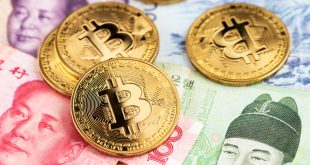Dubai TV hosted Mohammed Hashad, Head of Research and Development at Noor Capital, and a member of the US Association of Technical Analysts, to comment on and shed light on market movements, especially the American markets, which recorded further gains following the assassination attempt on Trump and amid ongoing negotiations for a ceasefire in the Middle East.
Market Reaction to the Assassination Attempt on Trump
Hashad pointed out that the markets reacted positively to events, resulting in significant gains in stock markets. He believes that Donald Trump may now be the frontrunner in the presidential race, with a better chance of reaching the White House, while Joe Biden’s prospects continue to diminish. This development will significantly impact the markets.
Hashad expects that the markets will see the US dollar’s status as a safe-haven asset strengthened in the coming period. This scenario could drive investors toward bond yields and a steeper yield curve for US Treasury bonds, thereby continuing the positive impact on stock markets.
Gold Prices, Interest Rate Cuts, and Powell’s Statements
Regarding the US elections, and the increased likelihood of Trump’s victory, Hashad responded to the impact of these developments on gold prices: “Gold is one of the commodities most affected by political and geopolitical tensions. The crucial factor currently influencing gold prices is the possibility of interest rate cuts in September or December. This is the key consideration, and in my view, despite slowing inflation data (with core inflation in the US reaching its lowest level since 2021, specifically in March), I believe Jerome Powell’s statements today will hint that there won’t be a rate cut in September. Instead, it will be postponed until December because Powell always seeks sustainable inflation around two percent.”
Performance of the Japanese Yen
Continuing the discussion on currencies, Hashad addressed the Japanese yen, which significantly outperformed other major currencies by the end of last week. He explained that the yen moved away from its lowest level in 38 years due to indirect intervention by the Japanese government. From his personal perspective, the Bank of Japan has begun changing its strategy. Previously, it intervened in the markets based on liquidity weakness and momentum weakness to achieve better support for the Japanese yen at a lower cost. However, this scenario has changed significantly, evident in the Bank of Japan’s recent actions.
The Japanese central bank now relies on a new strategy that focuses on leveraging existing market liquidity and increasing momentum. Consequently, Hashad believes that the Japanese yen has an opportunity to achieve further gains against the US dollar and other major currencies in the near future.
US Dollar Performance
Hashad also commented on the performance of the US dollar, addressing expert opinions that Trump’s victory or defeat will have a specific impact on the dollar. He stated, “Currencies, in general, are essential financial instruments in markets that move due to political and geopolitical changes. Clearly, Trump’s victory will significantly affect dollar movements. However, some experts and observers believe that Trump always directs attention toward the stock market. Hashad thinks that the eventual decline in the US dollar after Trump’s victory could ultimately lead to positive gains in the stock market.
Oil Prices
In terms of oil prices and weakened demand in China, which is one of the largest oil-importing countries, Hashad responded by highlighting three main challenges faced by China:
Economic Slowdown: China is experiencing an economic slowdown. This slowdown affects various sectors, including oil demand. As economic growth moderates, the demand for oil may decrease.
Real Estate Crisis: The real estate crisis poses a significant obstacle for China. It impacts consumer spending, investment, and overall economic activity. A slowdown in the real estate market can indirectly affect oil consumption.
Labour Market Weakness: China’s labor market also faces challenges. Unemployment rates and underemployment can dampen consumer spending and economic growth, leading to reduced oil demand.
Looking ahead, forecasts suggest that China’s economic slowdown will continue until 2025, with a projected growth rate of around 4.5%. Additionally, the country’s heavy reliance on the electric vehicle sector diminishes its dependence on oil. While this has been a key factor pressuring oil prices, other factors will come into play over the long term. Notably, supply shortages persist amid ongoing political and geopolitical tensions.”
Home / Market Update / Commodities / Noor Capital | Mohammed Hashad’s Interview on Dubai TV, July 15
Tags China Dollar Index Donald Trump gold prices industrial activity Jerome Powel Oil rate cut us stocks White House
Check Also
Yen Holds Firm as Currency Markets Weigh Japan’s Policy Shift and U.S. Outlook
The Japanese yen traded in a narrow range against the U.S. dollar as global currency …
 Noor Trends News, Technical Analysis, Educational Tools and Recommendations
Noor Trends News, Technical Analysis, Educational Tools and Recommendations




